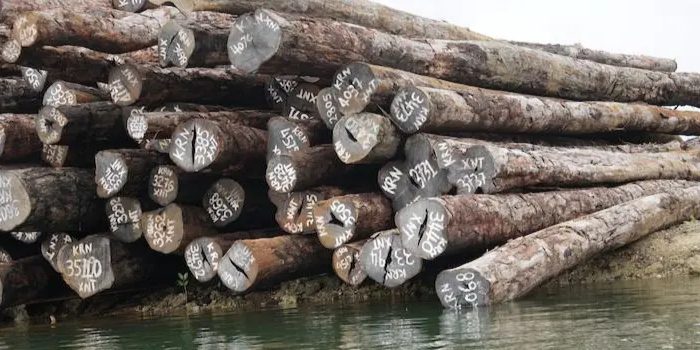Solomon Islands round log exports have declined in the last three years due to unsustainable harvesting of forest resources for exportation.
The Permanent Secretary (PS) of the Ministry of Forestry and Research, Richard Raomae highlighted this to the local media last week.
PS Raomae said Solomon Islands heavily depends on the logging of its forest resources for revenue, which means the government collects more revenue from the forestry sector than any other sectors and it will be difficult for it to do away with logging.
He said Solomon Islands has been logged for the past decades, which shows that the harvesting rate of round logs are approximately five times higher than the sustainable harvesting level of native forests.
“With the lack of proper legislation of the Forestry Act and proper updates in Forest Management, we have over-exploited our native forests. This indicates a decline in round logs, meaning our forests are no longer sustainable even though forests are renewable resources.
“The situation that Solomon Islands is currently facing in terms of round log exports to overseas markets is that log exports have decreased in the last five years. We have noticed that Solomon Islands exported an average of over 2 cubic meters and in the recent three years, the export volumes have decreased, indicating that we are running out of stocks in terms of round logs and forests,” PS Raomae emphasized.
PS Raomae added that another factor causing the decrease in round log exports to overseas markets is the introduction of carbon credits as a lot of resource owners preserve their forests for carbon credit benefits.”
“My ministry – the Ministry of Forestry and Research – currently receives some reports from foreign logging company contractors that their concession areas have run down of forest harvest, which is evident that the forests are decreasing.”
He said currently, the ministry plans to improve and expand forest tree plantations to the provinces, such as the Kolombagara Plantation and Eagon Pacific Plantations Limited in the Western Province.
“This is the plan the ministry is looking at. Instead of harvesting forests from our natural forests, we will pick and harvest from our forest plantations as one of the solutions to the decreasing forests. Another way is for the government to subsidize the revenue lost from the forest sectors,” PS Raomae added.
By JIMMY NOLAN
Solomon Star, Honiara









